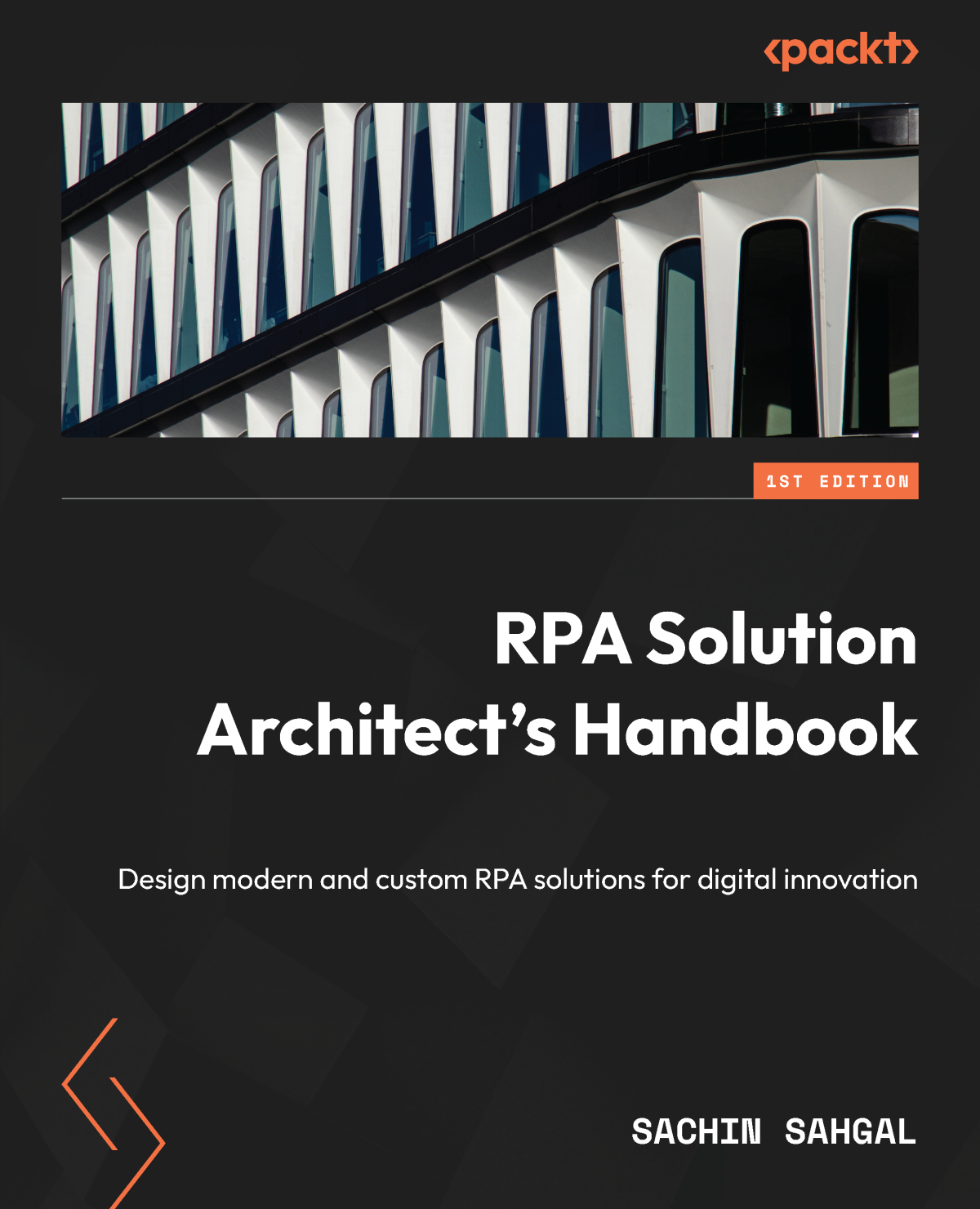

Most ebook files are in PDF format, so you can easily read them using various software such as Foxit Reader or directly on the Google Chrome browser.
Some ebook files are released by publishers in other formats such as .awz, .mobi, .epub, .fb2, etc. You may need to install specific software to read these formats on mobile/PC, such as Calibre.
Please read the tutorial at this link: https://ebookbell.com/faq
We offer FREE conversion to the popular formats you request; however, this may take some time. Therefore, right after payment, please email us, and we will try to provide the service as quickly as possible.
For some exceptional file formats or broken links (if any), please refrain from opening any disputes. Instead, email us first, and we will try to assist within a maximum of 6 hours.
EbookBell Team

4.0
86 reviewsDrive digital transformation by increasing efficiency and ROI for your organization as a robotic process automation (RPA) solution architect
Purchase of the print or Kindle book includes a free PDF eBook
Key Features
Learn architectural design and analysis of enterprise-wide RPA systems with real-world use cases
Explore tips and best practices to deliver scalable business outcomes through RPA implementation
Overcome challenges in intelligent automation, data, and security while building RPA solutions
Book Description
RPA solution architects play an important role in the automation journey and initiatives within the organization. However, the implementation process is quite complex and daunting at times. RPA Solution Architect's Handbook is a playbook for solution architects looking to build well-designed and scalable RPA solutions.
You'll begin by understanding the different roles, responsibilities, and interactions between cross-functional teams. Then, you'll learn about the pillars of a good design: stability, maintainability, scalability, and resilience, helping you develop a process design document, solution design document, SIT/UAT scripts, and wireframes. You'll also learn how to design reusable components for faster, cheaper, and better RPA implementation, and design and develop best practices for module decoupling, handling garbage collection, and exception handling. At the end of the book, you'll explore the concepts of privacy, security, reporting automated processes, analytics, and taking preventive action to keep the bots healthy.
By the end of this book, you'll be well equipped to undertake a complete RPA process from design to implementation efficiently.